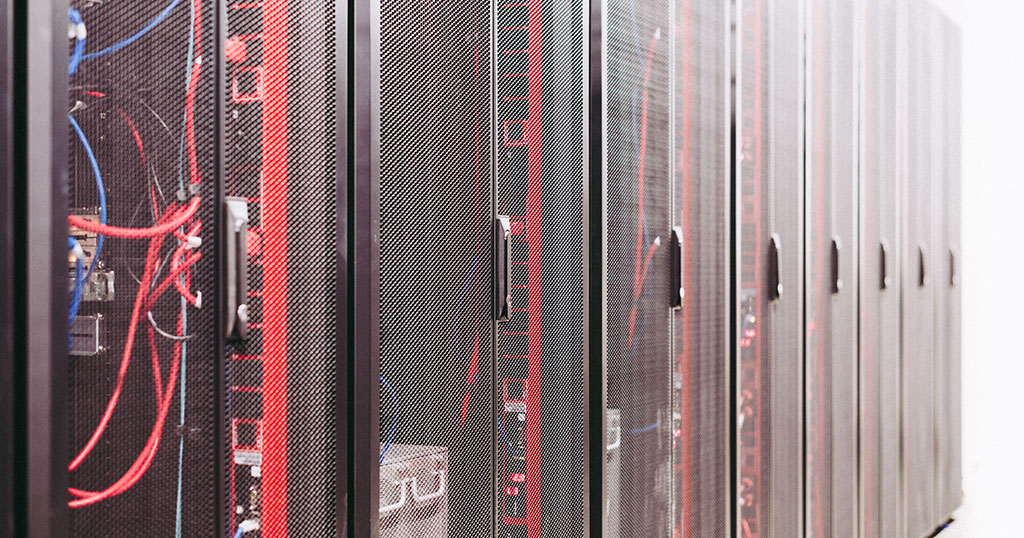
An Enterprise Data Warehouse (EDW) is a database, that collects and stores business data, and makes an enterprise business’ full scope of data available and suitable for analytics. Housed either on-premise or in the cloud, an EDW can grow as business needs do, in alignment with the organisation’s data requirements driving business growth.
To achieve this, then, it’s crucial that a business’ EDW complements its existing data infrastructure, allowing the platform to accept data from a range of business sources that each integrates directly into the database. This includes data from platforms like a business’ CRM, ERP systems, accounting software, IoT device management system, intranet, and much more.
An Enterprise’s Data Warehouse is essentially a data warehouse but on a much larger scale. It encompasses the entirety of an organisation’s data, both current and historical, collected from a range of sources all over the business, and stores it securely and comprehensively. An EDW requires strong processing capabilities, so it’s recommended that a business integrates best-in-breed and modern Enterprise Data Warehouse solutions like Snowflake, Azure Synapse, Google BigQuery, and Amazon Redshift.
Given its size, and an organisation's reliance on it, an Enterprise Data Warehouse is driven by requirements and takes time to curate and build right. Due considerations need to be given to ensuring the data is accurate, complete and actually needed by the business for reporting or insights.
By comparison, a Data Warehouse is typically smaller. They usually hold specific data collections, such as for individual business units or departments, such as for a sales team, or a finance department.
Where Enterprise Data Warehouses are built for enterprise-level organisations, smaller businesses can benefit from a data warehouse. They don’t need the whole data view that an enterprise-level business does—they only need the specific data they report on. However, as a smaller business’ data and query loads may grow over time, it’s important that their data warehouse has the capacity to scale and integrate more tools to deliver higher functionality.
While the specific architecture of a business’ Enterprise Data Warehouse solution may look different to other businesses, there are typically three main classifications under which the architecture will fall.
A comparatively primitive form of Enterprise Data Warehouse architecture, under a one-tier system the EDW and end-user analytical interfaces are connected directly. Given the simplicity, this means there are no extra analytical capabilities, and limited reporting capacity. Data is delivered at face value.
Two-tier Enterprise Data Warehouse architecture inserts a Data Mart layer between the EDW and end-user interface. This works to extend the EDW to include dedicated business unit information, and separates the data into specific domains, improving processing and query capabilities.
Three-tier Enterprise Data Warehouse architecture incorporates online analytical processing, or OLAP cubes, into the system. This is a specific database that presents data from multiple dimensions, which the user can easily move between, allowing them to slice and dice the data any way they need. This delivers more comprehensive and complete data mining and analysis, enabling better insight.
Related Article: Design The Perfect Modern Data Warehouse.
An Enterprise Data Warehouse collects and collates information from every integrated business source. It gathers information from the ERP, CRM, and POS systems, and houses information input from a business’ customers, and right throughout their supply chain. As such, it enables complete oversight over a business’ operations.
However, to achieve this level of insight, it can take a number of years to build in complete functionality. But while it may take time, the sheer breadth and depth of the data that this allows the business to access is undoubtedly worth it.
An Enterprise Data Warehouse captures the entirety of a business's information in one central location. It’s all stored accurately, up-to-date, and is made available for all necessary users to access. This operates as one single source of truth, so the user can get peace of mind that when reporting to regulators, customers, and internally, it’s always the right information. There are no multiple copies of the same data, no multiple versions of a calculation—just one single definition, meaning, and value for important business metrics.
Without a Data Warehouse, enterprise-level businesses are in breach of the law. So an Enterprise Data Warehouse, or even a Data Warehouse, isn’t just a nice-to-have—it’s a strict legal obligation the enterprise must abide by.
Having an EDW provides the ability to accurately and smoothly report to regulators, customers, and internally. It also enables the business to track both current and historical data, ensuring data compliance at all times.
This only applies to regulated companies, however. Smaller private companies aren’t regulated in the same way, so don’t have the same reporting requirements.
An Enterprise Data Warehouse provides a single centralised platform for business insights, reporting, predictions, and prescriptions. So by optimising it for a business's unique requirements, enables access to the specific data, that arrives at the end-user already cleaned, accurate, and ready to use. There’s no lead-time or lag when waiting to access the data, it’s all available in real-time, for immediate action.
And in the modern world, with online retail and 24/7 ordering, this level of speed is critical for a business to thrive. Users can’t afford to wait until the next business day—by this point, the data is already stale. The right Enterprise Data Warehouse solution enables a business to handle the relevant volume, variety, and necessary velocity of their data load, whenever they need it, enabling faster and more effective decision-making, business-wide.

Regardless of your industry, and however you see your organisation growing in the future, Tridant can help you build the right Enterprise Data Warehouse solution for your business.
Contact us to discuss an EDW solution that helps you uncover more insight, faster, across your entire enterprise.
Copyright © Tridant Pty Ltd.